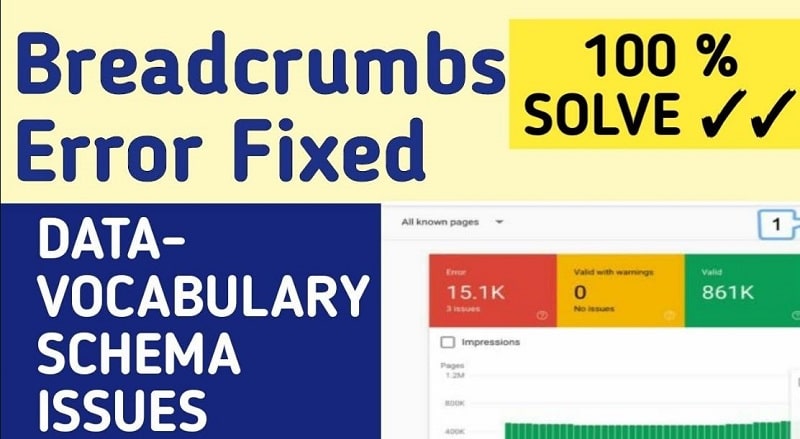If you’re managing a website and recently received a warning from Google Search Console about the data-vocabulary.org schema being deprecated, you’re not alone. This issue has been affecting thousands of site owners globally, and it’s especially relevant for those focused on SEO performance in competitive digital landscape.
In this guide, I’ll walk you through:
- What the warning means
- Why it matters for your site’s visibility
- How to fix it using schema.org markup
- Real-world examples tailored websites
- Bonus tips to future-proof your structured data
Let’s dive in.
🧠 What Is the “data-vocabulary.org Schema Deprecated” Warning?
Google Search Console started flagging this issue in early 2020, but many sites still haven’t addressed it. The warning typically reads:
“Items with data-vocabulary.org schema deprecated. Google will stop supporting this schema soon. Please update to schema.org.”
This means your site is using an outdated structured data format—data-vocabulary.org—which Google no longer supports. Structured data helps search engines understand your content better, and outdated formats can lead to rich results disappearing from search listings.
In reality, where click-through rates (CTR) and local SEO are crucial, losing rich snippets like breadcrumbs or product ratings can directly impact traffic and conversions.
🔍 Why it matters for your website ?
Today the digital economy is booming. Whether you’re running an e-commerce store in Orchard Road, a food blog in Tiong Bahru, or a tech startup in One-North, your visibility on Google matters.
Here’s why fixing this warning is urgent:
- Rich snippets boost CTR: Breadcrumbs, reviews, and FAQs stand out in search results.
- Google prioritizes schema.org: It’s the standard for structured data in 2025.
- Mobile-first indexing: Singapore’s mobile usage is among the highest globally. Clean schema helps mobile SEO.
- Local competition: Business websites are increasingly SEO-savvy. Don’t fall behind.
🛠️ How to Fix the Warning (Step-by-Step)
Let’s get practical. Here’s how to replace data-vocabulary.org with schema.org markup.
1. Identify Pages Using Deprecated Schema
Use Google Search Console’s “Breadcrumbs” report or run a site-wide scan with tools like:
- Screaming Frog SEO Spider
- Ahrefs Site Audit
- Google’s Rich Results Test
Look for code snippets like:
<div itemscope itemtype="http://data-vocabulary.org/Breadcrumb">
This is what needs to change.
2. Replace With schema.org Markup
Here’s the updated version using schema.org:
<nav aria-label="breadcrumb">
<ol itemscope itemtype="https://schema.org/BreadcrumbList">
<li itemprop="itemListElement" itemscope itemtype="https://schema.org/ListItem">
<a itemprop="item" href="https://example.com">
<span itemprop="name">Home</span>
</a>
<meta itemprop="position" content="1" />
</li>
<li itemprop="itemListElement" itemscope itemtype="https://schema.org/ListItem">
<a itemprop="item" href="https://example.com/blog">
<span itemprop="name">Blog</span>
</a>
<meta itemprop="position" content="2" />
</li>
</ol>
</nav>
This format is fully supported by Google and ensures your breadcrumbs appear correctly in search results.
3. Validate Your Fix
Use Google’s Rich Results Test to confirm your schema is working. You can also re-crawl the affected pages in Search Console to speed up indexing.
💡 Some Specific Use Cases
Let’s look at how this applies to real businesses:
🛍️ E-commerce (Shopee-style)
If you run a Shopify store selling local products, your breadcrumb schema might look like:
<span itemprop="name">Home</span> >
<span itemprop="name">Singapore Snacks</span> >
<span itemprop="name">Salted Egg Chips</span>
Switching to schema.org ensures your product categories show up in Google’s rich results, especially for “buy salted egg chips” searches.
🍽️ Food Blog
For a food blog targeting “best laksa in Singapore,” structured data helps your recipe pages stand out. Use schema.org’s Recipe markup to include:
- Cooking time
- Ingredients
- Ratings
- Calories
This boosts visibility for mobile users searching for “easy laksa recipe.”
🏢 Corporate Website
If you’re a B2B company offering cloud services, schema.org’s Organization and LocalBusiness markup helps Google understand your services, location, and contact info.
Example:
<div itemscope itemtype="https://schema.org/LocalBusiness">
<span itemprop="name">CloudTech SG</span>
<span itemprop="address">1 Fusionopolis Way, Singapore</span>
<span itemprop="telephone">+65 6123 4567</span>
</div>
📈 SEO Boost: Beyond Fixing the Warning
Fixing the schema warning is just the start. Here’s how to level up your structured data game:
✅ Add FAQ Schema
Nowadays, people love quick answers. Adding FAQ schema to your product or service pages can earn you instant visibility in search results.
✅ Use Review Schema
If you have customer reviews, mark them up with Review schema. This is powerful for local searches like “best web designing agency Singapore.”
✅ Implement Event Schema
Hosting a webinar or workshop ? Use Event schema to get it listed in Google’s event search.
🔐 Common Mistakes to Avoid
- ❌ Mixing data-vocabulary.org and schema.org on the same page
- ❌ Forgetting to update all breadcrumb instances
- ❌ Not validating after changes
- ❌ Using outdated URLs (e.g., http instead of https)
🧭 Future-Proofing Your Structured Data
Google’s structured data guidelines evolve constantly. To stay ahead:
- Subscribe to Google Search Central
- Follow VVCARES SEO experts on LinkedIn
- Use schema generators like Merkle’s Schema Markup Generator
- Audit your site quarterly
🏁 Final Thoughts
Fixing the “data-vocabulary.org schema deprecated” warning isn’t just a technical chore—it’s a strategic move to protect your SEO performance in fast-moving digital space.
Whether you’re a solo blogger, SME owner, or enterprise marketer, switching to schema.org is a must for 2025. It’s clean, future-proof, and Google-approved.
If you need help implementing schema or want a full SEO audit, feel free to reach out. Let’s make your site shine in search results—one structured data fix at a time.
